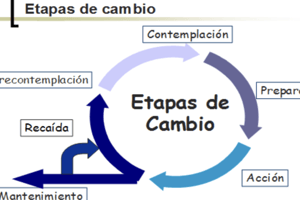Podcast
Questions and Answers
Which physiological process is most directly impaired by emphysema?
Which physiological process is most directly impaired by emphysema?
- The structural integrity of the lung tissue, leading to collapse.
- The ability of lung passages to regulate airflow through expansion and contraction.
- The body's ability to transport carbon dioxide away from the lungs.
- The efficient transfer of oxygen from the alveoli to the bloodstream. (correct)
Which statement best differentiates psychological dependence from physical dependence on a drug?
Which statement best differentiates psychological dependence from physical dependence on a drug?
- Physical dependence only occurs with illicit drugs, while psychological dependence can occur with any substance.
- Physical dependence manifests as a chemical need for the drug, whereas psychological dependence is a perceived need for the drug's effects. (correct)
- Psychological dependence involves visible physical symptoms during withdrawal, while physical dependence is purely mental.
- Psychological dependence is easier to overcome because it doesn't involve physical withdrawal symptoms.
A person decides to quit smoking 'cold turkey'. What challenges are they most likely to face?
A person decides to quit smoking 'cold turkey'. What challenges are they most likely to face?
- Heightened sensory perception and increased alertness.
- Intense withdrawal symptoms and a high risk of relapse. (correct)
- Reduced cravings due to the immediate absence of nicotine.
- Increased appetite and rapid weight gain from metabolic changes.
How does sidestream smoke primarily affect non-smokers in the vicinity of a smoker?
How does sidestream smoke primarily affect non-smokers in the vicinity of a smoker?
Which best explains how tolerance to alcohol develops over time?
Which best explains how tolerance to alcohol develops over time?
During an intervention, what role do 'enablers' typically play, and how should this be addressed?
During an intervention, what role do 'enablers' typically play, and how should this be addressed?
A driver with a Blood Alcohol Content (BAC) of 0.10% is stopped by police. What is the most likely legal consequence?
A driver with a Blood Alcohol Content (BAC) of 0.10% is stopped by police. What is the most likely legal consequence?
Which statement most accurately describes the function of Nicotine Replacement Therapy (NRT) in smoking cessation?
Which statement most accurately describes the function of Nicotine Replacement Therapy (NRT) in smoking cessation?
Flashcards
Nicotine
Nicotine
An addictive drug found in tobacco.
Addictive
Addictive
Causes intense cravings for a substance.
Vaping
Vaping
A newer method of consuming tobacco using an electronic device.
Emphysema
Emphysema
Signup and view all the flashcards
Withdrawal
Withdrawal
Signup and view all the flashcards
Alcoholism
Alcoholism
Signup and view all the flashcards
Cirrhosis
Cirrhosis
Signup and view all the flashcards
Intervention
Intervention
Signup and view all the flashcards
Study Notes
Nicotine Addiction
- Nicotine is an addictive drug found in tobacco, causing intense cravings.
- Vaping is a newer method of using tobacco, involving chewing or inhaling.
- Smokeless tobacco includes snuff, a chewed form.
- Tobacco smoke produces tar, a dark, thick liquid.
- Carbon monoxide is a poisonous gas released during burning.
- Alveoli are the air sacs in the lungs, damaged by emphysema and COPD.
- COPD involves inflammation and loss of elasticity in lung passages.
- Psychological dependence is the belief that a drug is needed to feel good.
- Physical dependence involves a chemical need for a drug.
- Withdrawal symptoms are painful and mental reactions to ceasing drug use.
- Relapse is returning to drug use after stopping.
- Secondhand smoke is breathing in smoke near a smoker.
- Mainstream smoke is exhaled smoke.
- Sidestream smoke is smoke from the burning end of a cigarette.
- Passive smoking is inhaling secondhand smoke.
- Cold turkey is quitting a drug immediately.
- Nicotine replacement therapy (NRT) aids in quitting nicotine addiction.
Alcohol
- Alcohol is a drug created by chemical reactions.
- Depressants slow down mental and physical reactions.
- Inhibitions are restraints on actions.
- Binge drinking involves consuming many drinks in a short period.
- Driving while intoxicated (DWI) is operating a vehicle with a blood alcohol content (BAC) of 0.08% or more.
- Intoxication involves physical or mental impairment from alcohol.
- Blood alcohol intoxication is the amount of alcohol in the blood.
- Alcohol poisoning happens with excessive alcohol consumption over a short period.
- Cirrhosis is scarring and destruction of liver tissues.
- Reaction time is the body's speed of response.
- Fetal alcohol syndrome is a birth defect caused by alcohol consumption during pregnancy.
- Alcoholism is a mental need for alcohol.
- Cravings are strong desires for alcohol.
- Tolerance is requiring more alcohol to feel the same effect.
- Alcohol abuse is problematic alcohol use.
- Enablers support an alcoholic's dependence.
Intervention and Recovery
- Intervention involves loved ones assisting someone with alcohol or substance abuse.
- Recovery involves the process of regaining health and freedom from dependence.
- Detoxification is the physical process of removing a substance from the body.
STOP Technique
- STOP technique is a method for dealing with unwanted situations.
Studying That Suits You
Use AI to generate personalized quizzes and flashcards to suit your learning preferences.




